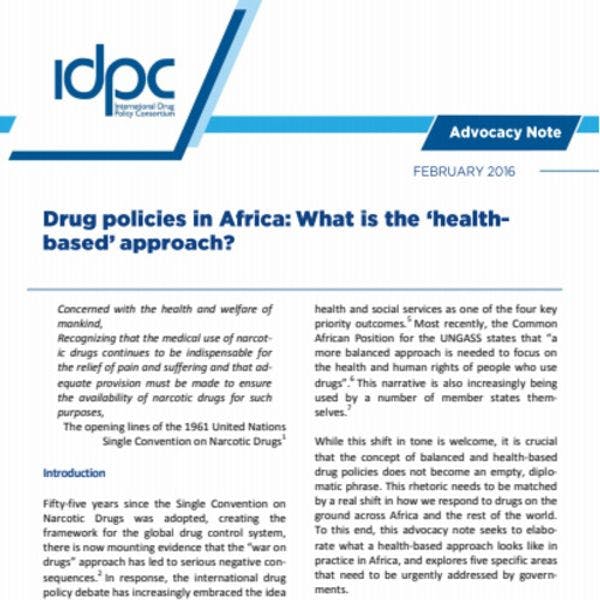Drug policies in Africa: What is the 'health-based' approach?
Fifty-five years since the Single Convention on Narcotic Drugs was adopted, creating the framework for the global drug control system, there is now mounting evidence that the “war on drugs” approach has led to serious negative consequences. In response, the international drug policy debate has increasingly embraced the idea of more balanced, health-based approach. In the UN’s ‘Joint Ministerial Statement’ on drugs from 2014, member states agreed by consensus that “the world drug problem… demands an integrated, multidisciplinary, mutually reinforcing, balanced and comprehensive approach”. In April this year, the UN General Assembly Special Session (UNGASS) on the world drug problem will include a roundtable devoted to “Drugs and Health”.
At the regional level, the African Union’s Plan of Action on Drug Control 2013-2017 includes health and social services as one of the four key priority outcomes. Most recently, the Common African Position for the UNGASS states that “a more balanced approach is needed to focus on the health and human rights of people who use drugs”. This narrative is also increasingly being used by a number of member states themselves.
While this shift in tone is welcome, it is crucial that the concept of balanced and health-based drug policies does not become an empty, diplomatic phrase. This rhetoric needs to be matched by a real shift in how we respond to drugs on the ground across Africa and the rest of the world. To this end, this advocacy note seeks to elaborate what a health-based approach looks like in practice in Africa, and explores five specific areas that need to be urgently addressed by governments.
Keep up-to-date with drug policy developments by subscribing to the IDPC Monthly Alert.
Other reports in this series:
- Drug policies in Africa: Towards a human rights-based approach
